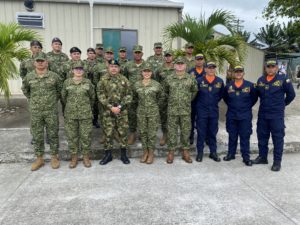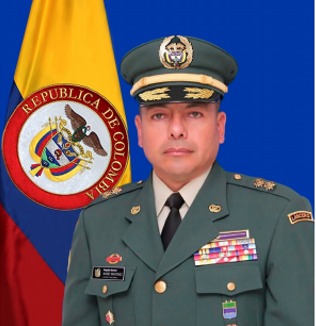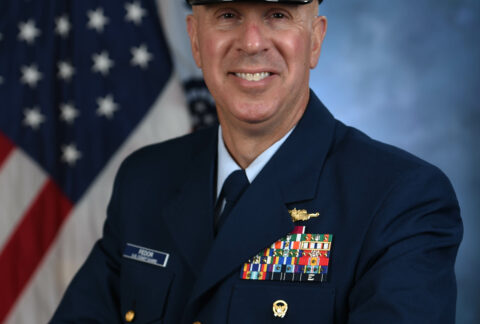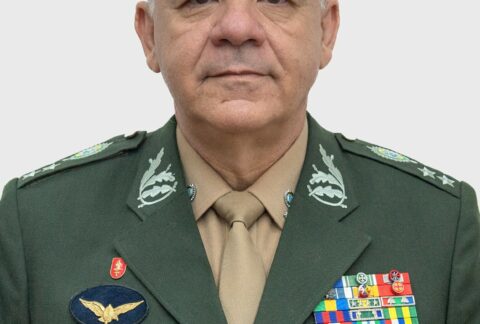The Hercules Joint Stabilization and Consolidation Task Force, created in 2018 with the support of Colombia’s Office of the Attorney General, the Office of the Inspector General, and the Judicial Police, gathers land, sea, and air service members to halt the violence that illegal armed groups and illicit crops generate in the Tumaco region and municipalities of the Nariño department, Colombia, near the border with Ecuador.
Its former commander, Colombian Army Brigadier General Nayro Javier Martínez Jiménez, spoke with Diálogo about the joint task force’s progress and the challenges to security in this area.
Diálogo: What is the mission of this task force?
Colombian Army Brigadier General Nayro Javier Martínez Jiménez, former commander of the Hercules Joint Stabilization and Consolidation Task Force: Our mission is to conduct joint operations with the National Navy and the Air Force and coordinated [operations] with the National Police. We work interinstitutionally with the Office of the Attorney General and multilaterally with the Ecuadorian Armed Forces, under the guidelines of the Heroes of Freedom [Héroes de la Libertad] Bicentennial Campaign Plan, to attack the persistent threat system in Nariño’s southern Pacific area, contribute to protecting the civilian population and the State’s assets and resources, and seek the conditions of security and stability that this area requires, together with the institutions of other State agencies.

Diálogo: What components do you have, and how do you coordinate actions?
Brig. Gen. Martínez: We receive support from the National Army’s land component, with the 2nd Rapid Deployment Force and the Pegasus Operational Command. The National Navy supports us with the 4th Marine Corps Brigade; and from the Air Force, we have the support of the 7th Air Combat Command.
Diálogo: What kind of joint, coordinated, combined, and interinstitutional operations do you carry out to stop illegal armed groups that operate in the area?
Brig. Gen. Martínez: We carry out a series of operations that seek to affect each of the factors of instability in the territory, such as the major Operation José Inocencio Chincá against narcotrafficking and everything relating to this scourge; the major Operation Pedro Pascasio Martínez against illicit economies; the major Operation Simón Bolívar against the ELN [National Liberation Army] organized armed group; the major Operation José María Córdova against residual organized armed groups of the former FARC [Revolutionary Armed Forces of Colombia]; the major Operation Horus to address territorial institutional control in each of our regions; and the major Operation Artemis, an operation very important to us, considering that Nariño’s Pacific coast is an area where protecting the environment, the water resources, and nature in general is very important.
Diálogo: What progress has been achieved in stopping narcotraffickers in the area?
Brig. Gen. Martínez: We’ve reached important results such as bringing to justice individuals belonging to residual organized armed groups, and we are conducting a strong campaign to get the people in these groups to surrender or demobilize, and to recover minors who have been illegally associated to this problem. In our joint operations, especially with the Marine Corps, we’ve seized a very significant amount of not only solid and liquid chemical precursors for processing [coca] base paste, but also the cocaine hydrochloride that we’ve seized in the labs themselves or when they were ready to be sent abroad through the Pacific Ocean.
Diálogo: What is the added value of this task force to Colombia’s national effort to combat narcotrafficking and provide security to citizens?
Brig. Gen. Martínez: Our added value is the presence of our soldiers and marines everywhere in the Nariño Pacific territory. We control the main mobility corridors formed by the great rivers that cross this jurisdiction and serve as veritable highways, through which not only the solid and liquid chemical precursors for cocaine circulate, but obviously the result of this entire process. Our presence makes it much more complicated for narcotrafficking organizations to generate this illicit trade of narcotrafficking products. The presence of our soldiers is also a launching point so that other institutions can reach the territory, since we have capabilities in place in each municipality, which other institutions use.
To watch the entire interview with Colombian Army Brigadier General Nayro Javier Martínez Jiménez, who was the Hercules Joint Stabilization and Consolidation Task Force’s commander from June 2020 to November 2021, please visit this link: https://dialogo-americas.com/pt-br/articles/jtf-hercules/#.YbJ-BNDMLIU









